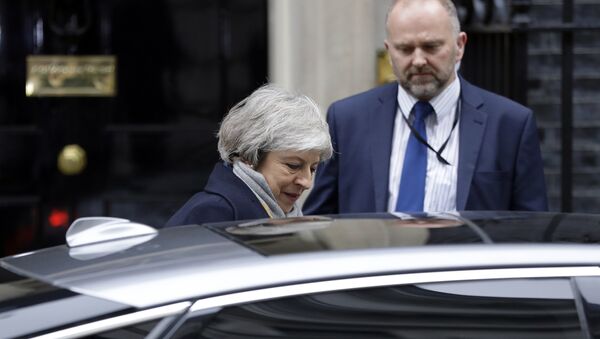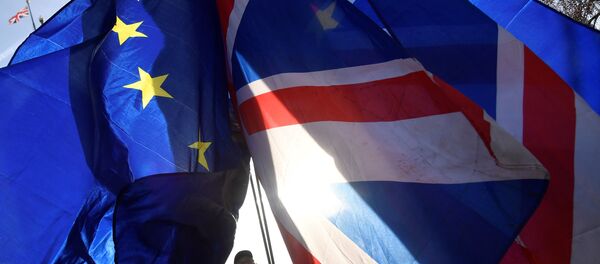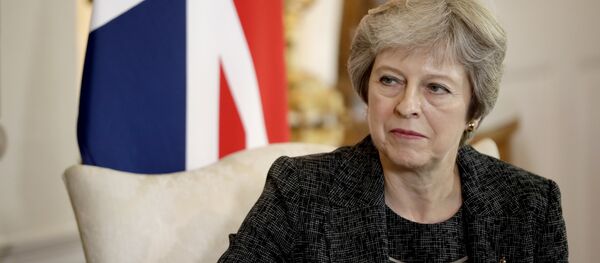EU leaders reacted with dismay on Tuesday to the Commons defeat of the Brexit deal, the result of two years of intense talks between London and Brussels.
Reacting to the historic vote, French President Emmanuel Macron warned that Britons would be the biggest losers of a no-deal Brexit.
"First option is no-deal, they say there will be no deal. This scares everyone but Britons will be the biggest lowers," he said.
German Vice Chancellor Olaf Scholz described Tuesday’s outcome as a sad day for both the United Kingdom and the European Union, but stressed Germany was ready for a no-deal scenario.
"This is a bitter day for Europe. We are well prepared — but a hard Brexit would be the least attractive choice, for the EU and GB," he tweeted.
READ MORE: UK Lawmakers Overwhelmingly Vote Down May's Brexit Deal
Similarly, Netherlands’ Prime Minister Mark Rutte said his country would step up preparations for a no-deal Brexit, adding his government and the union favored the withdrawal arrangement agreed by London and Brussels.
Meanwhile, the Irish government said in a statement, obtained by the Irish Post, it regretted the defeat of the deal which it saw as the best way to avoid the return to a hard border on the island of Ireland, but stressed it was nonnegotiable.
"The Irish Government recalls the clear position of the European Council at its meeting of December 13 when it stated that the Withdrawal Agreement is not open for negotiation," it read.
"Regrettably, the outcome of tonight’s vote increases the risk of a disorderly Brexit. Consequently the Government will continue to intensify preparations for such an outcome," it added.
Belgian Prime Minister Charles Michel warned Britons that the ball was in their court and that they needed to take responsibility for their decision. He said that in the coming days the Belgian customs agency would take steps to protect companies from Brexit fallout.
WATCH Hundreds March in London to Protest PM May's Deal, Brexit Chaos
The deal was supposed to have been voted on by the parliament in December 2018, but the crucial procedure was postponed by Prime Minister Theresa May amid high risks that the long-sought agreement would not stand amid growing concerns over the Irish backstop, a fallback plan to avoid a hard border between the Republic of Ireland and Northern Ireland.
Meanwhile, support for a second Brexit referendum has been gaining momentum in the country. Therefore, if the UK parliament does not endorse after the Tuesday's vote the final agreement with the European Union, the country could expect either a second referendum or a no-deal Brexit — an option that reportedly entails serious economic implications and financial losses for Britain.





